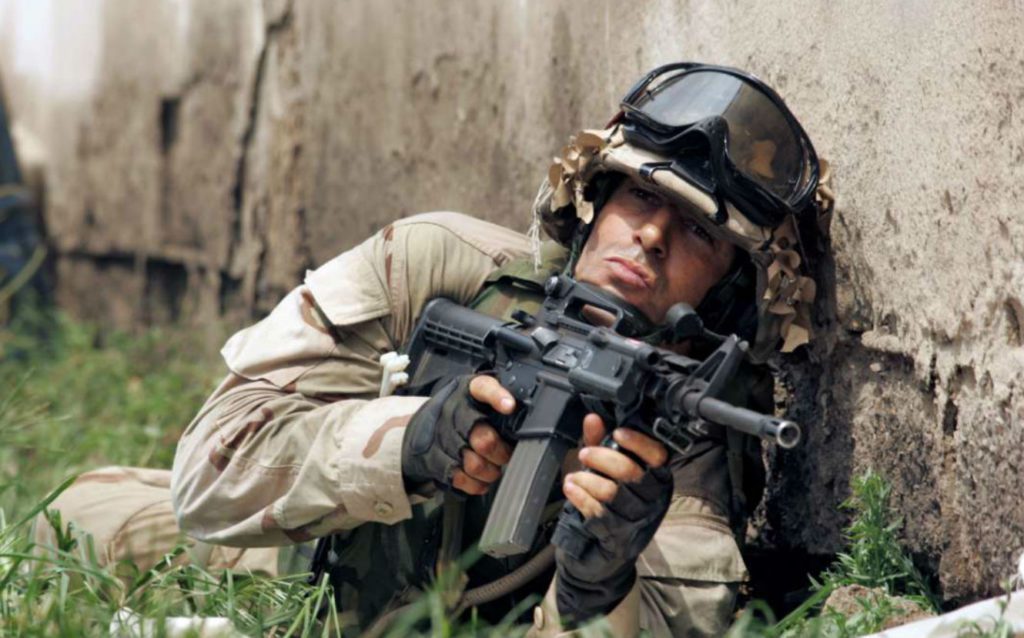Generation Kill stands out as a realistic depiction of the Iraq War, thanks to its source material from journalist Evan Wright and the attention to detail in military procedures. The miniseries captures the chaos, camaraderie, and dark humor that soldiers experience in combat, highlighting the fog of war and the challenges they face on the battlefield. Despite its grim subject matter, Generation Kill has received critical acclaim for its authenticity and powerful performances. It offers viewers a unique insight into the lives of Marines during the invasion of Iraq, making it a must-watch for those seeking a nuanced portrayal of modern warfare.
Generation Kill: A Realistic Depiction of the Iraq War
Introduction:
In the world of television and film, there have been many portrayals of war throughout history. Some have been glorified, some have been overly dramatized, and some have been wholly unrealistic. However, HBO’s miniseries Generation Kill stands out as a truly realistic depiction of the Iraq War. Based on the book by Rolling Stone journalist Evan Wright, Generation Kill follows a group of U.S. Marines as they invade Iraq in 2003. The miniseries not only captures the chaos and confusion of war but also the camaraderie and dark humor that soldiers use to cope with their experiences.
Heading 1: A Real-life Perspective
What sets Generation Kill apart from other war dramas is its commitment to realism. Evan Wright, who embedded with the Marine Corps First Recon Battalion during the invasion of Iraq, provided the source material for the miniseries. As a journalist, Wright was able to provide firsthand accounts of the events that transpired during the invasion, giving viewers a unique insight into the lives of the Marines on the ground.
Heading 2: Authenticity in Action
One of the most striking aspects of Generation Kill is its attention to detail when it comes to military procedures and tactics. From the way the Marines communicate over radio to the way they clear buildings during missions, every aspect of the miniseries feels authentic. The actors underwent extensive training in order to accurately portray the behavior and mindset of Marines in combat, and it shows in their performances.
Heading 3: The Fog of War
One of the central themes of Generation Kill is the fog of war, the uncertainty and confusion that soldiers face on the battlefield. The miniseries depicts the chaos of combat in a way that is both visceral and disorienting. Viewers are thrust into the midst of firefights and skirmishes, experiencing the same sense of uncertainty and danger that the Marines face.
Heading 4: Camaraderie and Dark Humor
Despite the grim subject matter, Generation Kill also explores the camaraderie and dark humor that soldiers often use to cope with the stresses of war. The Marines in the miniseries banter and joke with one another, forming strong bonds that help them navigate the challenges of combat. This blend of humor and tension adds depth to the characters and makes them feel more human and relatable.
Heading 5: Critical Acclaim
Upon its release in 2008, Generation Kill was met with critical acclaim for its realistic portrayal of the Iraq War. The miniseries was praised for its authenticity, its strong performances, and its unflinching portrayal of the horrors of war. Many veterans of the Iraq War commended Generation Kill for its accuracy and attention to detail, hailing it as one of the most realistic depictions of modern warfare on television.
Heading 6: Conclusion
Generation Kill is a powerful and poignant portrayal of the Iraq War, offering viewers a window into the experiences of those who fought on the frontlines. By capturing the chaos, camaraderie, and dark humor of war, the miniseries provides a realistic and unflinching look at the realities of combat. For those seeking a nuanced and authentic depiction of modern warfare, Generation Kill is a must-watch.
